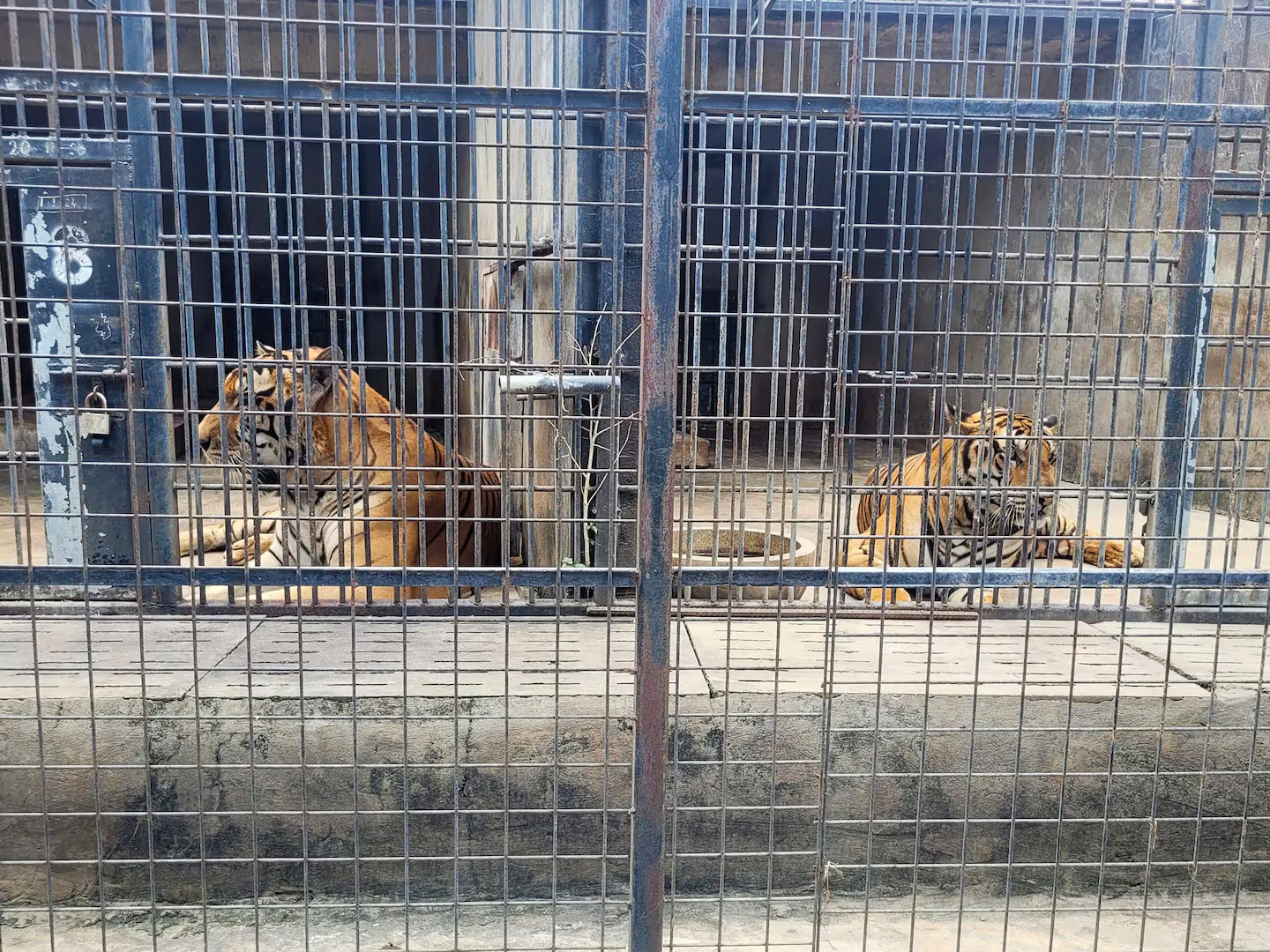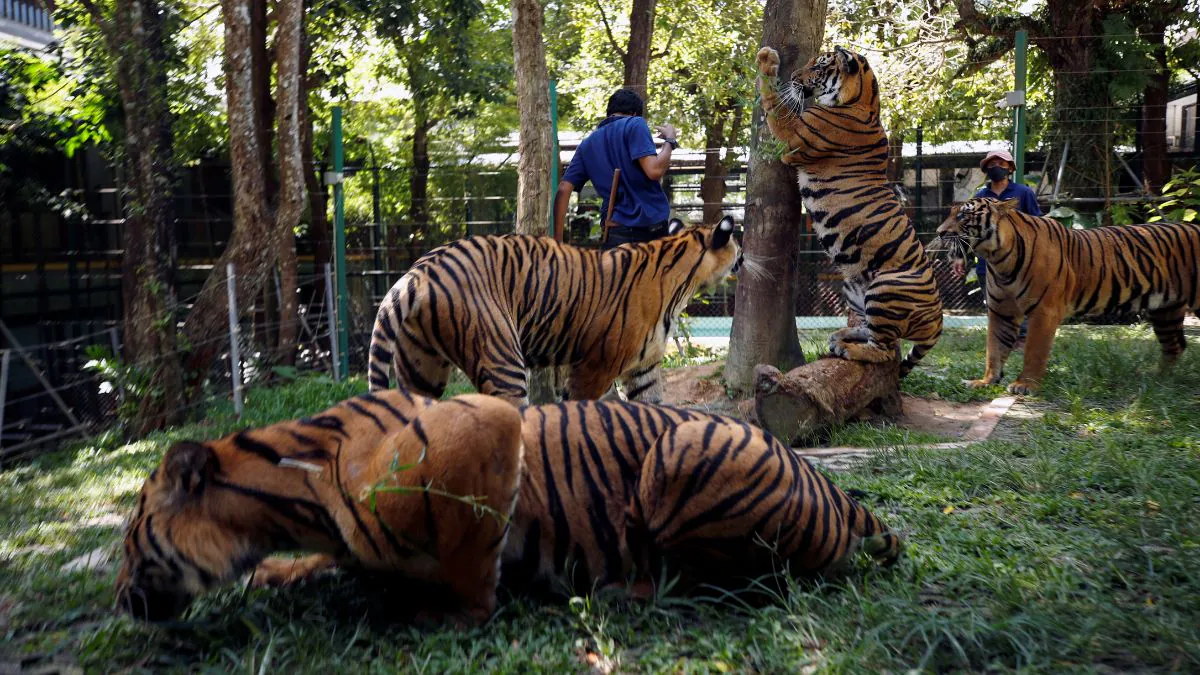In southern Vietnam, an outbreak of bird flu has led to the deaths of over a dozen tigers at Vuon Xoai Zoo in Bien Hoa City. According to a caretaker from the zoo, the tigers had been fed raw chicken sourced from nearby farms, which is believed to have been contaminated.
The animals, including a panther, displayed signs of weakness, stopped eating and died rapidly within two days of falling ill. The dead tigers, which ranged in weight from 10 to 120 kilograms, were immediately incinerated and buried on the zoo’s premises to prevent further spread of the virus.
The H5N1 virus, commonly known as bird flu, was identified in the samples taken from the deceased tigers. First discovered in 1959, H5N1 has evolved into a lethal strain affecting various animals, not just migratory birds and poultry. In recent years, the virus has been detected in a wide range of species, from household pets like dogs and cats to wild animals such as sea lions and polar bears. In cats, the virus is known to attack the brain, cause damage to blood vessels, and induce seizures, often leading to death.
As a precautionary measure, over 20 other tigers at the zoo were placed in isolation and closely monitored for signs of the virus. The zoo houses around 3,000 other animals, including lions, bears, and giraffes, but there have been no reports of bird flu affecting them.

Additionally, the 30 staff members responsible for the tigers were tested and found to be in good health, showing no signs of the virus. However, a similar outbreak recently occurred in Long An province, where 27 tigers and three lions died in September from bird flu.
The outbreak of bird flu among these large cats highlights the broader concerns surrounding zoonotic diseases, which can be transmitted from animals to humans. In the United States, health officials recently reported two cases of bird flu in dairy workers in California, bringing the total number of such cases in the country to 16 in 2024. While human infections remain rare, the threat of zoonotic diseases remains, as they have the potential to spread to humans and could potentially trigger pandemics.
Animal rights groups, including PETA, have voiced concerns over the incident, criticizing the captivity of wild animals as a public health risk. PETA’s Senior Vice President, Jason Baker, commented on the deaths of the tigers and other large cats, saying the tragedy underscores the dangers of keeping wild animals in captivity. Baker warned that such practices increase the likelihood of another pandemic, posing significant risks to global human health.
